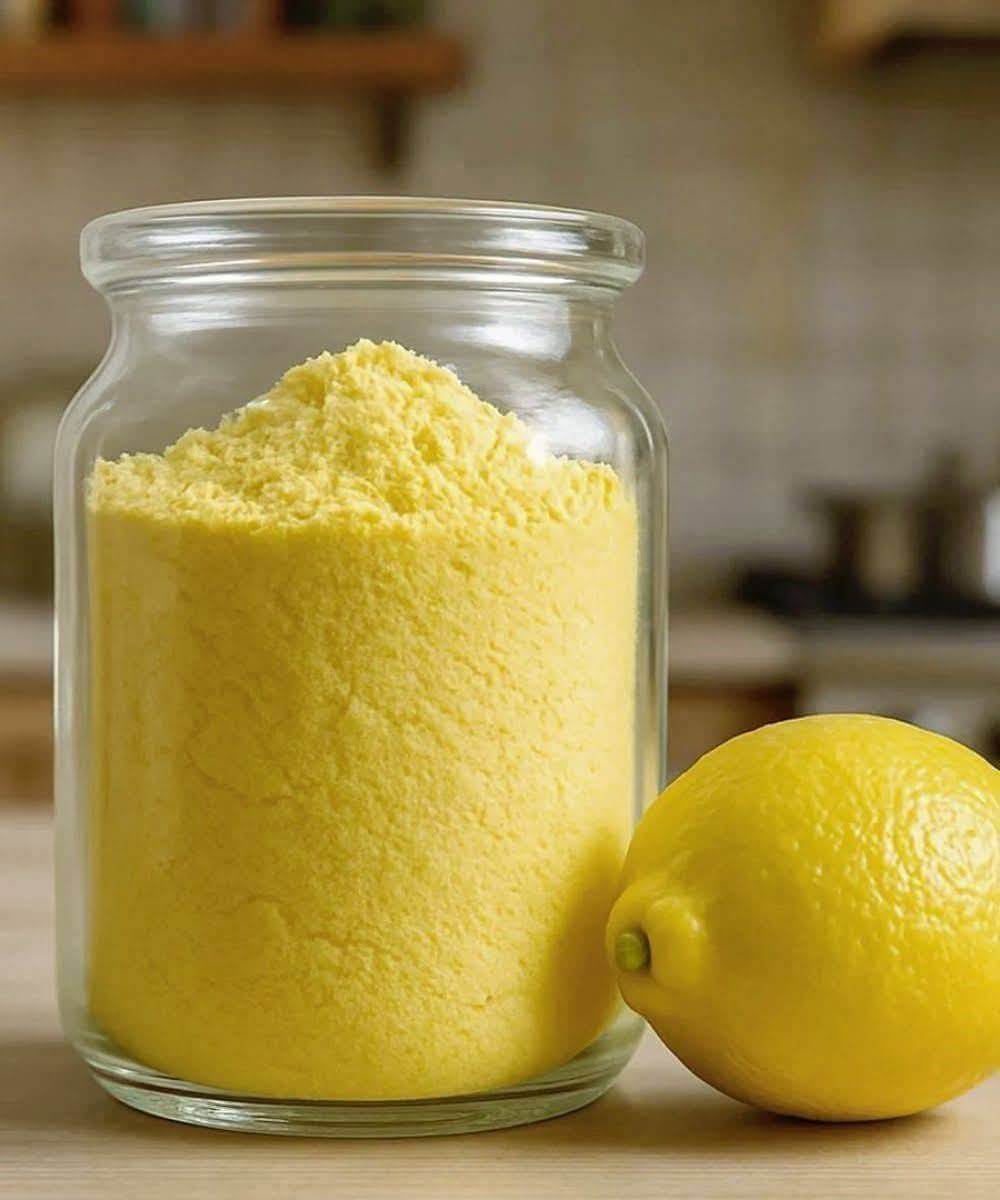squeezed a lemon for juice or a dish
Everyone has foolishly thrown away the rind after squeezing a lemon for juice or a dish. We thought these peels were worthless, but they actually contain a wonderful culinary treasure: homemade lemon powder. This simple, affordable, and unique method will add a little more flair to your dishes and sweets. Are you ready to discover this aromatic gem?
Imagine an ingredient that comes in a small jar, smells like summer, and goes well with your savory meals and soft desserts. Lemon powder is exactly what it does. Its lively, fresh smell complements a wide range of foods and is made from dried and finely ground lemon zest. Making the most of every centimeter of our lemons—especially if they are grown organically—and minimizing food waste may also be achieved by reusing the peels.
Ingredients
Lemons that are organic or untreated (as many as desired)
Cold water (for cleaning)
Directions
Choosing the correct lemons: To prevent chemical residues and guarantee a stronger aroma, choose for organic or untreated lemons.
To prepare the zest, properly wash and pat dry the lemons in cool water. Steer clear of the bitter white pith by removing the zest with a small knife or vegetable peeler.
Drying the zest:
Sun-drying: Lay out the zest on a fresh towel and leave it in a light spot for two to three days. At night, bring it inside to keep it dry.
Using an oven, dry the zest on a baking sheet at the lowest setting (around 140°F/60°C) for one to two hours, checking often.
Dehydrator: Dry for two to three hours at 135°F (57°C) until brittle.
Grinding the zest: Using a blender, mortar & pestle, or spice grinder, grind the zest into a fine powder when it has completely dried.
Storage: Place the powder in an airtight container and store it somewhere cool and dark.
Differences
Try combining lemon powder with other citrus zests, such as orange or lime, for a unique twist that will create a rich flavor profile.
For a delicious seasoning combination, you can also mix it with herbs like rosemary or thyme.
It can also be used with sugar to make a lemon-flavored sweetener for drinks or desserts.
For a zesty boost, mix in a pinch of black pepper or chili powder with the lemon powder if you like spicy foods.
This is excellent in marinades or rubs for foods that have been grilled. Combine the powder with cinnamon or vanilla sugar for a sweeter version that makes a distinctive dessert garnish.
To make delicious tea blends or cocktail rimming salts, mix the powdered lemon with ginger or mint leaves. Discover your favorite combos by experimenting with the countless options.
Advice
To avoid chemicals and pesticides in your powder, always use organic lemons. If organic isn’t available, clean the lemons well with water and baking soda to get rid of any surface residue.
Harvest lemons when they are completely ripe for the finest flavor because their zest will be the most fragrant. The zest can become bitter and lose its vital oils if it is over-dried.
Just give your powder a quick grind or sift it before using if it starts to clump over time. Start with tiny amounts and adjust to taste because a little goes a long way.
How to Keep Things Safe
To maintain its freshness and scent, keep lemon powder in an airtight glass jar or container. Keep it out of direct sunlight and in a cold, dark location, such as a pantry or cupboard.
Although homemade lemon powder has the strongest flavor in the first three months, it can last up to six months when stored properly. You can keep it in the freezer to prolong its shelf life, but before using it, allow it to return to room temperature to avoid condensation.

